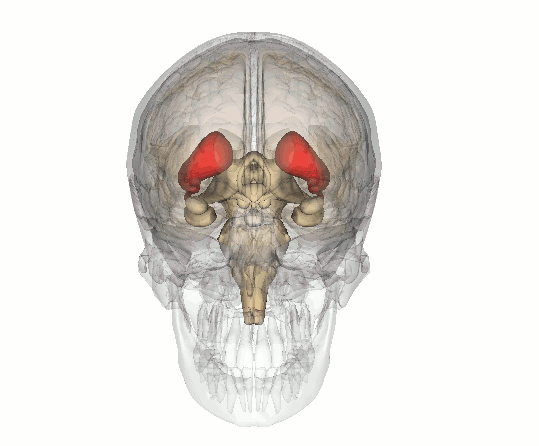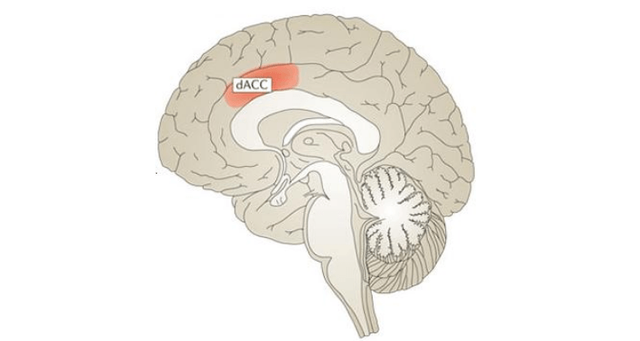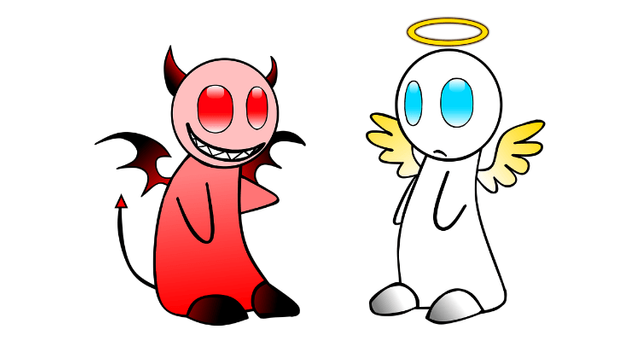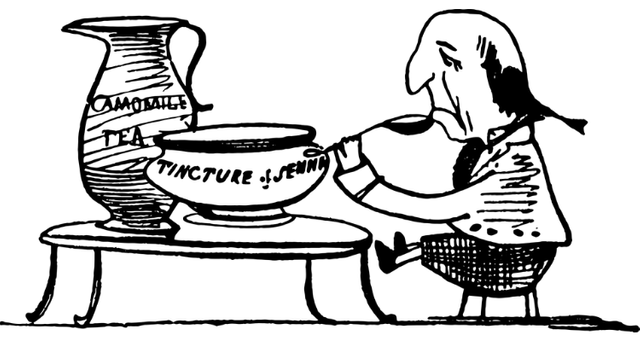Psychology Addict # 44 | Envy: An Unfortunate Facet of Human Nature

Once upon a time there was a family, the Proctors, who lived in a big property in the outskirts of Salem. There they cultivated their land, raised their children and lived under strict catholic values. Well, that was until John Proctor found himself alone in the barn with their young housekeeper, Abigail Williams, and … ahm … well, you can imagine the rest. Unfortunately, for everyone, Elizabeth Proctor found out about the event, which for John became nothing more than a regretful sin; but, for Abigail, it turned out to be the fuel that inflamed her passion for him. Upon discovering the incident, Elizabeth dismissed the young woman, who through her struggles to deal with Mr. Proctor’s rejection kick started a chain of events that ultimately had him (and others) killed.
It is easy to narrow down Abigail’s emotions to the jealousy she feels towards the man she loved, and, hence, read Arthurs Miller’s play, The Crucible, from that angle. Nevertheless, there is yet another important perspective through which this character can be observed. That of the feeling Elizabeth Proctor elicits in the young woman:envy. Abigail lives in a society where women are not particularly respected and valued, she is an orphan, and depends on the charity of her uncle to have a place to live as well as food to eat. Elizabeth, on the other hand, is a married lady, with children of her own. She is liked by the villagers as a result of her decency, but above all she is loved and respected by John, Abigail’s object of desire.
The Neurocognitive Mechanisms of Envy
.gif)
Striatum
Envy is irrational, it’s painful. And that is because it is marked by inadequacy and inferiority; feelings that are sparked by what one perceives as another’s superior possessions, attributes and success 1. It is no wonder why it is argued that envy may be a ‘social-pain’, one that cuts deep into the self. The self that when threatened by the outperformance of another loses sight of its own positive image. Personally, I believe that it is this loss (of positive self-concept) that leads some people to act upon their envy in a negative manner. Spreading out detrimental rumors is an example. I also see this in Abigail Williams, who appears to have lost her sense of pride and morals, and thus has no problem in resorting to mean-spirited ways to get rid of Elizabeth. After all, no Elizabeth, no threat.
Envy, however, gets a bit more obscure than this, as it yields pleasure and satisfaction from the envied person’s troubles. This particular pleasant feeling is called schadenfreude, and when experienced, a certain part of our brain, the ventral striatum, is activated 2. Can you imagine? Being emotionally rewarded at the expense of a specific individual’s misfortune? It was this very feature of envy that inspired Bertrand Russell to pronounce that “of all the characteristics of human nature, this is the most unfortunate one.” Because, you see, when we envy someone, our affective empathy towards them is suspended 3 and, as it appears to me, a malignant ‘survival’ drive sets in.
The Evil Within?

What is more, envy works in very specific ways. I wonder if you ever stopped to think about it. For instance, its target is not selected randomly. Quite the contrary, the envied individual needs to tick a few boxes. And since social comparison is what gives rise to it, the envied individual is one who belongs to a context relevant to the envious person, and is often seen as advantaged. Abigail and Elizabeth’s scenario illustrates this concept quite well, as much as the scenarios of Cain and Abel, and Iago and Othelo. Here, all the former characters saw the latter ones as being favoured within a domain they shared, a perception that the envious individuals held as a threat to their very position in their relevant medium. I laughed when reading Russell’s writings as he raised the question: ‘Reader, have you ever been unwise to the point of complimenting an artist to another artist?’
So, I am sure you get the picture now, correct? Then, picture that someone you envy and reflect on the domains of comparison between you two; the stronger the relevance, the more intense is the feeling (envy). Now, that very image activates your dACC (the dorsal anterior cingulate cortex) 4. That is the neurocognitive mechanism of envy itself, right there. The more intense the level of envy you hold for that person the stronger the dACC activation 5 (which, in turn, will make their misfortunes all the more pleasant for you by means of greater schadenfreude) 6. It is the activation of this area that explains the ‘pain’ often attributed to envy. And, there is yet something else that I find particularly interesting here, the findings that report the activation of this same region (ACC) as a reaction to social exclusion 7. There certainly is a lot more to envy than meets the eye.
Both Sides

I believe that the reason as to why envy is a feeling hard to acknowledge (how many times have you blurted out ‘I am envious of such and such’, or even admitted it to yourself?) is a consequence of how it has been portayed throughout history. For example, both in the Jewish and Christian Bibles envy is seen as something that one shall not, as the tenth commandment orders ‘You must not be envious of thy neighbour's goods’. Also, in Buddhism, the feeling has been placed under the 16 Mental Defilements, while the Tao advises us to ‘conceal what people desire in order to not disturb their hearts’. Moreover, I am yet to meet a historical personage who accomplished greatness via the path of envy. These all are elements responsible for turning envy into a taboo subject, as they borrowed its definition from its maddest extremes.
Yet, I am confident to say that envy might be a feeling that at some point in life encourages most of us to set a well-defined goal and make our way towards it. I agree with the psychoanalysis notion which proposes that our innate tendencies (the id) are not entirely bad, but rather simultaneously good and bad. This becomes very clear to me with regard to envy. The threat that comes with it can work as a powerful motivator, this has huge potential to be a good thing. And, while schadenfreude is not exactly the most noble of feelings; well, it is all about not acting upon it. Or, even about counterbalancing it. Have you ever thought of challenging the less noble side of your nature? What about sending a positive empathic message to that individual you envy who is undergoing tribulations? After all he/she has provided you with the personification of the very achievement you desire, by demonstrating that getting there is actually possible. But, of course, such decisions highly depend on the sophistication of one’s character, which directly reflects the values one possesses.
A Remedy for Those with Envious Disposition

At the social level, Hidehiko Takahashi and his colleagues suggest that envy plays a positive part in economic growth when it functions as a performance enhancer 8. Bertrand Russell went as far as to place this feeling at the ‘basis of democracy’ by saying: ‘the passion that has driven democratic forces is the passion of envy’. For me, such observations lend more and more support to the fundamental role the act of comparing plays in sparking envy. This is precisely why Russell, when suggesting a remedy for the envious man, put bluntly: ‘the habit of thinking in terms of comparison is a fatal one’. This is, of course, at the personal level, which is the one I am most interested in.
And this is why this post may be important to you, because it attempts to explain the social, cognitive and emotional mechanisms of envy with the intention of demystifying it. When something is defined by its maddest edges, as Jon Ronson would say, they can become truly frightening. But, the unknown soon becomes less intimidating when we gain insight into it. As fatal as Russell suggests comparative thinking is, for us to stop rationalising in such a way is not just a matter of turning off a switch. Because that is how our mind works. Otherwise, how can we then understand the worth of things? Our judgement of them takes place more by means of comparison than by evaluating their intrinsic value 9. It is just how we make sense of such abstraction. This process is also true in self-evaluation. However, there is something that should never be taken for granted, that should never be ignored: our uniqueness.
Apples & Pears

In the earlier stages of our lives we do need to compare ourselves, for instance, to mum and dad. Because it is through having standards that we begin to develop and form our individuality, without them a child or a young person has no direction to follow, and hence, no action to take. Nevertheless, as we begin to journey on that path, as we face its obstacles and find ways to keep on going, we become progressively unique.
The older we get the more pronounced our individuality becomes, as a result of the course that our lives have taken, the choices we have made and so forth. Making us, therefore, increasingly less comparable to others. So, it is not that thinking in terms of comparison, at the personal level, is fatal. It simply doesn’t make sense. It’s like @insight-out queried in her post, if I am an apple and you are a pear, how can I possibly expect to be like you? She continued to shed light on this through explaining that all I can possibly, sensibly try to be is a juicier, sweeter apple. This is a great metaphor, which, in the words of J.B Peterson, means that in trying to achieve greater goals in life, instead of comparing yourself with who someone else is today, compare yourself to who you were yesterday 10.
Reference List:
Miller, A. (1953). The crucible. New York: Viking Press.
10 Peterson, J. (2018) 12 Rules for life : an antidote to chaos. Canada: Random House.
Russel, B. (1930).The conquest of happiness. London, George Allen & Unwin Ltd.
1 to 9 Takahashi, Hidehiko & Kato, Motoichiro & Matsuura, Masato & Mobbs, Dean & Suhara, Tetsuya & Okubo, Yoshiro. (2009). When Your Gain Is My Pain and Your Pain Is My Gain: Neural Correlates of Envy and Schadenfreude. Science (New York, N.Y.).323. 937-9. 10.1126/science.1165604.


This is so precise definition! It strikes right in person's ego where person can't believe that someone is better than him, so it triggers that dark side of envy without realizing that other person's success doesn't lower your value.
I had a close encounter with this phenomenon while I was in high school - I was in a 'super class' with big number of extremely successful individuals and that energy pulled us into amazing competency which went not only on 'business' but also personal, so today we have the results - we was one of the best classes that professors ever seen there and at the same time there aren't some friendships between us, basically no one loves no one.
It's good to have that healthy dose of envy which will create that competitive spirit and push you further but we should keep it limited and be aware of that dark side.
I see that you read Jordan Peterson, I love that man! :D
It's nice to see one more article of yours Abi :)
Wish you all the best :)
Hey @nikolanikola ❤ :)
The experience you went through in high school is a very interesting one. I say it so because of how competition is so intrinsic to selfishness. In a perfect world, it should be replaced by cooperation. But, I am sure that evolution is greatly responsible for this! Otherwise, if we hadn't had our ego, or self-image threatened what motivation would we have to keep on going?
In the end, for the sake of our subjective well-being, it is all about taming our demons, which only can be possible if we get to know them better!
Yes, Peterson is great.
Thank you for stopping by and leaving such an insightful comment :)
You take care!
It's also interesting because we went through that in our teenage period, it just schooled us for the rest of our lives.
Of course, that's why I read your blog :P
It sometimes can be like user's 'how to' guide for self-understanding :D
Owww, you are too kind @nikolanikola. I am going to give you a Friday kiss.
There you go: 😘 😊
Just one kiss? Pfff
:blushing: :sendingkissesback: 😘😘
😂
This is awesome. I think you did an excellent good job in explaining the nuances of the emotion (i.e the overall negative perceptions of it in society based on the viewpoints of religion and how it can change within the individual over time).
As you discussed, though envy is generally seen in a negative light, there are adaptive benefits to the emotion as well.
I took a "psychology of emotions and motivation" course as a part of my psychology degree which really helped me understand emotions. Overall, emotions are adaptive in humans and they often serve a social function. They communicate feelings to others, influence how others interact with us, they facilitate social interaction and they help us create, maintain and dissolve relationships. As such, emotions in humans are not random psychological and biological events that have no meaning. To the contrary, each emotion serves a very specific function in the individual.
Envy is a cognitively complex emotion that is influenced by social mechanisms.
On a basic level, envy's adaptive function is to motivate the individual to improve their social position to that of the person that is envied. As such, it can motivate individuals to improve themselves which can be very positive for the individual and society in general.
However, as you also suggested, envy can also have a more destructive aspect to it which is sometimes referred to as "malicious envy." Malicious envy can motivate the individual to sabotage or "pull down" the envied person to an inferior level.
According to some researchers, the difference in how envy functions within the individual comes down to an evaluation of deserved-ness. If the individual believes that the other person earned their superior position and they deserve it, then that mindset can lead the individual to believe that the world is a fair and just and that improvement of the self is possible. This can motivate the individual to work harder in order to improve themselves as well. On the other hand, if the individual believes that the envied person's superior position is not deserved and that it was obtained through an unfair advantage, then this can lead to the belief that the world is not fair and just and that self improvement is not possible, which in turn can manifest malicious envy within the individual.
As you pointed out with your demonstration of where the emotion manifests within the brain a person biology interacts with their psychological and social environment.
Anyway, that's enough of my rambling. As always, great article!
Reference: Reeve, J. (2016). Understanding Motivation and Emotion (6th ed.). Hoboken, NJ: Wiley
Hey @leaky20
I am very pleased to hear you liked this post :)
Thank you for pointing out the social-functions of emotions here. This is a very relevant observation which becomes all the more clear when one analyses it from the evolutionary perspective.
I found the observation you made here regarding evaluation of deserved-ness particularly interesting. I wonder if this sort of perception : the individual believes that the other person earned their superior position and they deserve it correlates with certain personality traits?
I shall look into this (one day when I have time).
I would like to thank you for pointing out Reeve's book to me :)
PS: I love your 'rambles'.
I wish you a great week ahead.
All the best.
yeah I'm not sure if personality traits influence that perception but it is an interesting question for sure. Intuitively it seem as though it would have an impact but I'm not sure. Good question.
i believe that we are created by GOD , each of us very unique , unique in our own special way. Envy comes in when someone ,i think ,is not satisfied with what she have or not happy where she is. also , comparison mighr really be nature to humans , it'okay to compare but not to the extent that you aim to havesomething you can't and you don't need just because you're envy with others.
Hi miss @abigail-dantes , good to have you posting again . I hope you are doing well , always take care and remember we love you loads.. 😘❤️❤️❤️
Posted using Partiko Android
I agree with you on this one this is the negative side of envy, sometimes because of the envious feeling we don't see our own capacity to be more than the people that we are envied, like for example my experience when I was working, i worked in sales so on my first month, (I hate to brag) i got the top sales agent for the month, so I thought that's great but then my supervisor approached me and told me that they need to re iew all my transaction first before I can get my commission, because they received a report that I was purging some of the info of my clients to be qualified, but I know from my heart that I didn't do such thing, so I made my own investigation, who might be the one who sent that wrong report about my transaction, then I found out that it was the previous top agent, and from there I realized that he was envy.
I also agree with you on this one, this is the envy that I usually feel, especially here in our platform, everyday I'm seeing post with big earnings, What I do is I study those people, (stalking) checkung their activities and how they are getting those upvotes, then. I Will try it myself, thoughnit that big earnings but atleast improving 😊😊😊
Envy/jealous I think really depend on a person feeling it, and how their attitude in life is, because if a person was brought up by their parents in a. Positive outlook in life, they will carry it anywhere, but if they have a negative. Outlook, that's where the problem arise,
Thank you again miss Abi, after almost half a month, we read another useful topic from you.... Never ending thank you again.... Hope you too have a great week
Much Love,
AVHY 😘😘😊🇵🇭
You are right, let the success of that other person be a proof and an assurance that we can achieve that which our heart desires not an excuse to slip into a dark side of envy and jealousy.
Welcome back!
Thank you my dear! It is nice to be back :D
Yep, you said it all ... there is no excuse! Even more so when we have the understanding of how it all works :)
Thank you for your comment & for taking the time to read. It means the world to me :*
Wow well like you reiterated, envy has never been known to be a stepping stone for an achievements by anyone ever in history and history itself has showcased that envy itself is a human negative attribute that must be blurted out just like in the case of Cain and Abel, Iago and Othello.
If you ask me I think envy some how is ill channeled, to me it's not good or something bad it's just what it is depending on how the human mind makes use of it, in other word, it's a weapon.
The woman Abigail William must have felt envy but it was as a result of the love she had felt for the man, she someone felt she was deserved of love just equally as Elizabeth and then resorted to other means to get it. My point is here envy could've propelled her to set out in life to achieve great things, it could've acted also as a motivation to her, but instead she made of envy what she wanted out of it just like history always have it.
I may be dead wrong, what do I know, but do you know the envy I felt towards people who are more successful than me has helped me stayed awake at night working harder on other to get by hard work what o wasn't freely entitled to or given and I felt I needed to have them?
In a nutshell I think envy will always be part of us, it's a human attribute that will always present itself I'm certain circumstances of our lives and how we deal with them totally matters a lot, else it's dark part (envy) may just take us down a certain conundrum that will completely take away our humanity.
Welcome back @abigail-dantes, hope you enjoyed your sabbatical? So wonderful to read again from you this rainy Saturday in my part of the world.
This is precisely what I tried to convey here my dear @josediccus :) 'the use of envy as a motivation', which I believe it can be done if we understand its neuropsychological mechanisms. Unfortunately, Abigail Williams wasn't equipped with the right values to do that.
I am so glad to hear about your very own account of envy! Thank you for sharing it here with us :) it illustrates the whole idea of how envy can also be a positive drive in life in a very real-life sense.
I did enjoy my mini-break! Thank you for asking.
I wish you good healthy & a relaxing weekend :*
❤
Of course, sometimes history shouldn't be a defining factor in how envy generally affects life, positivity can also come out from things people consider generally bad and evil @abigail-dantes. Beautiful content you know I've learnt a greater deal from this. Thank you for the amazing feedback too.
Oh! I am so pleased to hear you liked this post, and that it brought you some new information :)
You take good care of yourself :*
This is a raining Friday in my own part of the world.👅👅
Meanwhile, I agree with you that if it is properly channeled, we can make something good out of envy. But is there not a difference between envy and Jealous?
I think that envy and jealousy can be used interchangeably, in colloquial language, when it comes to the discomfort towards the achievement of others. In psychological studies though, the word envy is the one always preferred by researchers to describe this feeling :)
At times even when we condition our minds not to compare ourselves to others and then feel that envy, we tend to fall victim to external similar comparison done by the people in our social circle and unluckily for us that might cause us to partake in some subtle comparisons, but I think that the actions we take when we are envious of someone else is what makes our envious side good or bad.
This is a very insightful, straight-forward comment @nigtroy!
You have raised a very important point here: the comparison that others place us in. But, I believe that in such cases, once again, self-understanding plays an important part in these cases as much as communicating them to others... this is a sort of discussion which I believe it is very important to have in the household to avoid this sort of situation.
Thank you for this great comment!
Best :)
Well, it amazes me that envy is what can be triggered in the brain even with a term given to it schadenfreude. All this while I believed its just an emotional thing.
But I have a question, is it possible for homicide section of the police to measure the activities at the ventral striatum of the brain while investigating a murder suspect that is connected his/her victim just like Cain and Abel?
I will also say that this evil withing human is dangerous and I don't think that human can handle it without a great help possibly from his creator, because why on earth will someone derive pleasure from the misfortune of the fellow he is envious of ?. @abigael-dantes, this is a great piece.😘😘
My dearest @steepup :D How wonderful to see you here!
Ok, let's just clarify a few things here :)
schadenfreude is not a neuropsychological term for envy. Rather it is a rewarding feeling that positively correlate to envy. For example, the more we envy someone, the more intense the pleasure we feel to see them undergoing tribulations, and that is schadenfreude. Ok? :)
The mechanisms of envy itself is seen on the dACC area.
Anyone can have their ventral striatum activity measured by means of an fMRI. But, my guess is that it would be quite costly to implement that in homicidal departments of the police force.
As well as you, I do find very intriguing as well that within our brains there is a mechanism that rewards us at the expense of another's misfortunes. Human are truly incredibly complex beings!
Thank you for taking the time to read and leave your feedback about this topic my dear. I am very glad to hear you like this post :D
All the best to you 😘
Thanks ,i think all is clearified, you are such a wonderful author
You are very kind :*